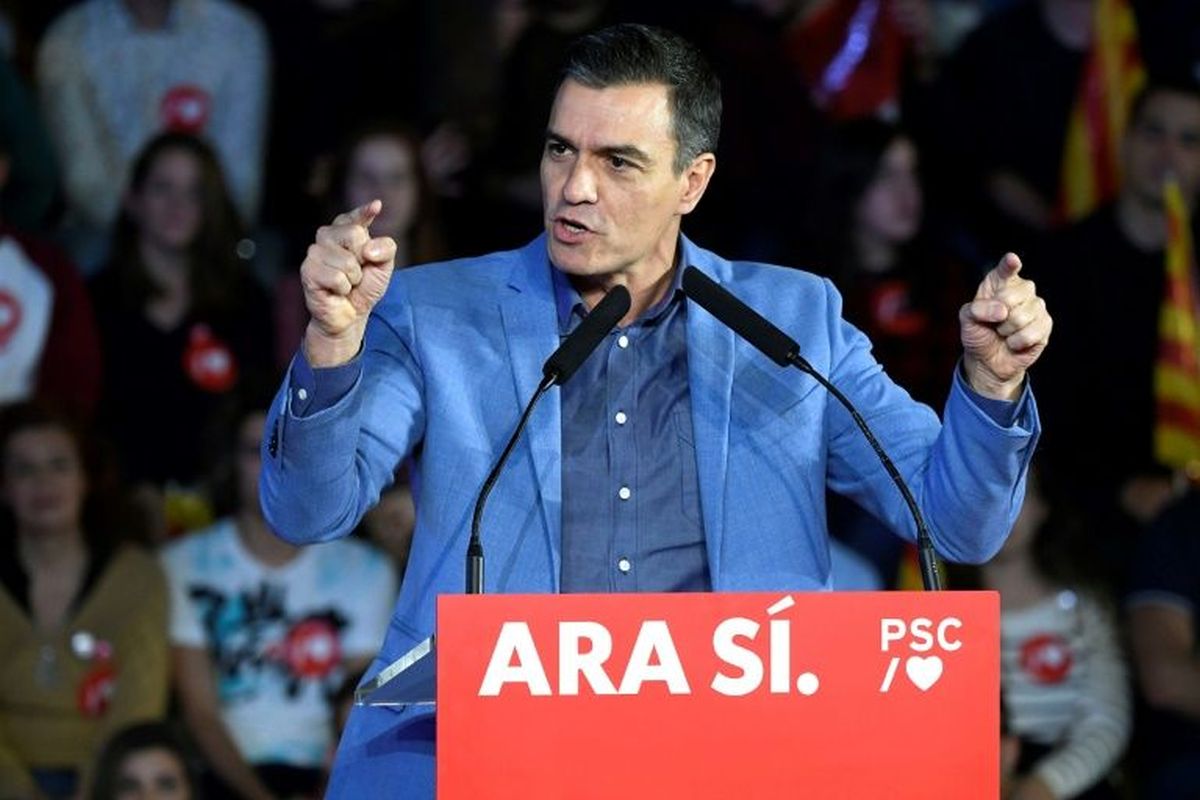PM Modi holds bilateral talks with Dominica PM Roosevelt Skerrit in Georgetown
Prime Minister Narendra Modi met with the Prime Minister of the Commonwealth of Dominica, Roosevelt Skerrit, for a bilateral discussion in Georgetown, Guyana.
More than 600 people were injured in the protests, which saw demonstrators torching barricades and throwing stones and Molotov cocktails at police.

Spanish Socialist Party (PSOE) leader is hoping to gt a ruling majority from the election (Photo: AFP)
Amid tensions over separatist movement in Catalonia, Spain holds its fourth general election in as many years on Sunday.
Acting Prime Minister Pedro Sanchez called the repeat polls after failing to secure support from other parties following an inconclusive election in April which saw his Socialist party win the most votes, but no working majority, in parliament.
However, opinion polls suggest this new election will fail to break the deadlock. Neither the left nor the right look likely to win a ruling majority in Spain’s 350-seat parliament.
Advertisement
The Socialists look set to finish top again, but with slightly fewer seats than the 123 they picked up in April. The main opposition conservative Popular Party (PP) may also strengthen their parliamentary presence.
More than 600 people were injured in the protests, which saw demonstrators torching barricades and throwing stones and Molotov cocktails at police.
Sanchez said Madrid had sent a “significant” number of security forces to the northeastern region, to ensure the unrest did not disrupt voting in Catalonia.
During a TV election debate, PP leader Pablo Casado called for a “real government that will put an order in Catalonia”.
Less than a month ago, Spain’s Supreme Court sentenced nine Catalan separatist leaders to lengthy jail terms over their role in a failed 2017 independence bid.
With no single party able to secure the required 176 seats for a majority, the Socialists are likely to opt for a minority government, ING analyst Steven Trypsteen said.
“Voting intentions appear to have changed since the April election. But these changes will not make it easier to form a government, so the political situation is likely to remain difficult after this weekend’s vote,” he added.
Last month, clashes erupted between protesters and police in Barcelona.
Catalan separatists set fire to barricades and garbage containers and threw Molotov cocktails at police who fire foam and anti-riot rounds.
Vice President of the Catalan Parliament Oriol Junqueras was sentenced to 13 years prison for sedition and misuse of public funds, while politicians Raul Romeva, Dolors Bassa and activist Jordi Turull have all been handed a 12-year sentence.
In 2017, police and protesters clashed when Catalonia’s pro-independence leaders went ahead with a referendum ruled illegal by Spain’s constitutional court.
In September, a march in Barcelona in support of Catalonia’s independence from Spain drew crowds of about 600,000 people – one of the lowest turnouts in the eight-year history of the annual rally.
Spain has been caught in political paralysis since the election of December 2015 when far-left Podemos and business-friendly Ciudadanos entered parliament.
(With inputs from AFP)
Advertisement